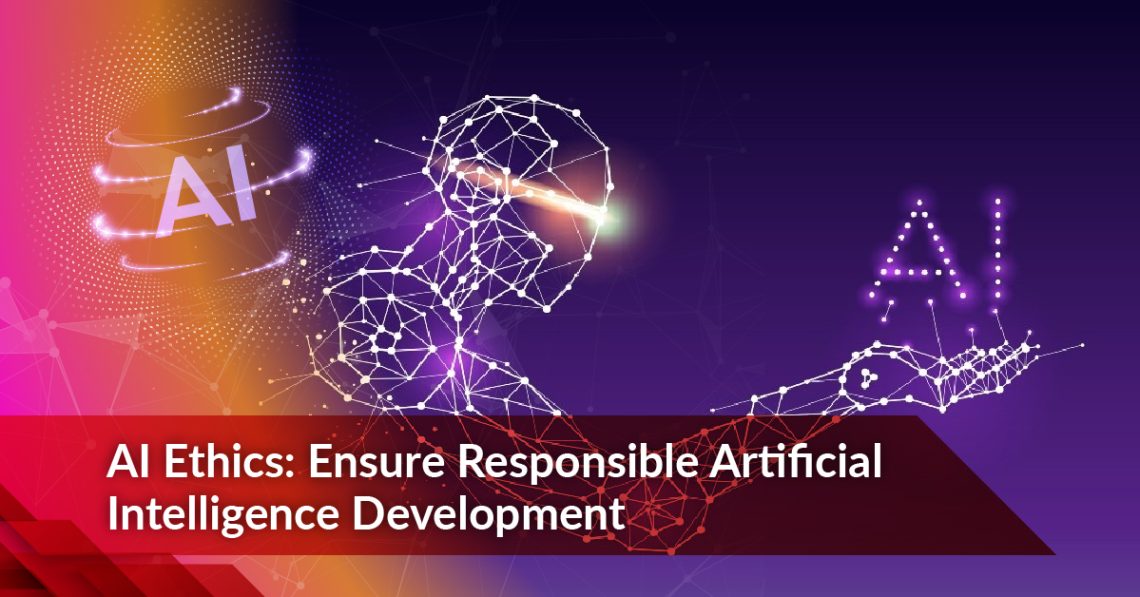As artificial intelligence (AI) technology advances rapidly, it is transforming how we live, from healthcare and education to transportation and finance. However, alongside these technological advances, the potential risks and ethical challenges of AI are also becoming apparent. How to ensure that AI benefits society without being misused or leading to unforeseen consequences has become a global discussion focus. This article will explore the core issues of AI ethics and offer suggestions on how to ensure responsible AI development.
1. Core Issues of AI Ethics
Before discussing how to ensure responsible AI development, we must first understand the key ethical issues AI faces:
- Bias and Discrimination:AI models rely on training data, which often reflects historical societal biases. If not handled carefully, AI may amplify these biases, leading to discriminatory decisions. For example, AI could make unfair decisions based on race, gender, and other biases in hiring, credit assessment, and the judicial system.
- Privacy and Data Security: AI requires large amounts of data for training. However, the collection, storage, and use of this data may involve privacy concerns. Leaks, misuse, or unauthorized use of user data can pose serious privacy risks.
- Accountability: When AI systems make incorrect decisions, who is responsible? This issue is particularly critical in high-risk fields such as autonomous driving and medical diagnostics. If AI causes unexpected harm or loss, should the developer, user, or AI itself be held accountable?
- Transparency and Explainability: Many AI systems, particularly those based on deep learning, are “black box” systems. Even if the system makes the right decision, humans cannot understand the logic behind it. This lack of transparency may lead to a lack of trust in AI systems and even fear.
2. Key Principles for Ensuring Responsible AI Development
To ensure the responsible development of AI technology, tech companies, government agencies, and the academic community worldwide have begun establishing a set of principles and guidelines. Here are some key principles:
Fairness: AI systems must be fair and just, avoiding bias and discrimination. Developers should identify and eliminate potential biases during the data selection, model design, and testing phases. Diverse data sources and rigorous review mechanisms can help reduce unfairness in AI decision-making.
Transparency: Ensuring the transparency of AI systems is crucial to building trust. Developers should provide explainable AI models, enabling users and regulators to understand how conclusions are reached. This not only increases user confidence but also provides a basis for legal and regulatory oversight.
Responsibility and Accountability: Developers, deployers, and users of AI systems should have clearly defined roles and responsibilities. When AI systems encounter issues, responsible parties must be held accountable, both legally and morally. A clear responsibility-tracking mechanism is necessary to prevent shifting blame.
Privacy Protection: AI’s development should not come at the cost of personal privacy. Developers must adhere to strict data protection protocols, ensuring user data collection and usage are authorized and secure. Additionally, anonymization and secure storage of data should become standard practices to reduce privacy risks.
Human Oversight: While AI can perform many complex tasks, human oversight and control remain essential. Critical decisions, such as medical diagnoses or judicial rulings, should remain under human control. Human oversight ensures both the accuracy of AI systems and serves as a safeguard against AI misuse.
3. How to Achieve Responsible AI Development
To implement the above ethical principles and ensure AI development stays on the right track, the following actions can be taken:
Establish Global AI Ethics Standards: Governments, tech companies, and international organizations should collaborate to create unified AI ethics standards. These standards should cover data privacy, bias elimination, and accountability, among other areas, and have global applicability.
Strengthen AI Ethics Education: Fostering ethical awareness during the development and application of AI is crucial. Tech companies should provide AI ethics training for employees to ensure they consider potential societal impacts when developing and using AI. Moreover, schools and universities should incorporate AI ethics into their curricula, fostering a sense of moral responsibility in the next generation of technology developers.
Create AI Review and Regulatory Bodies: To ensure the transparency and responsible use of AI systems, governments and related industries can establish independent AI review and regulatory bodies. These bodies should have the authority to review, evaluate, and regulate AI technologies, ensuring their application aligns with ethical standards.
Public Participation and Oversight: AI’s impact extends beyond the tech sector and profoundly affects society as a whole. The public has a right to participate in discussions about AI ethics. Governments and tech companies should create mechanisms to encourage public discussion and oversight of AI applications, ensuring that AI development aligns with public interests and values.
4. Case Study: Responsible AI in Action
Several tech companies and organizations have already taken the lead in responsible AI development and application. For instance, Google has proposed the “Seven AI Principles,” which include avoiding bias and promoting explainability. Microsoft has created a dedicated AI ethics committee to oversee the development process of AI projects. Furthermore, the European Union has introduced AI ethics guidelines requiring all AI systems to consider ethical and social impacts during their design and deployment.
Conclusion: A Moral Guide for AI Development
AI technology brings unprecedented opportunities, but it also presents complex ethical challenges. To ensure the responsible development of AI, society as a whole must collaborate. From developers to governments, regulatory bodies, and the general public, each group must focus on and participate in the discussion of AI ethics. By adhering to principles such as fairness, transparency, accountability, and privacy protection, we can minimize the risks of AI and ensure that technology serves the well-being of human society.
The future of AI depends on how we address these ethical challenges today. Only by following ethical guidelines can we ensure that AI technology becomes a positive force for human progress.
Are you ready to dive deeper into the topics you love? Visit our website and discover a treasure trove of articles, tips, and insights tailored just for you!





